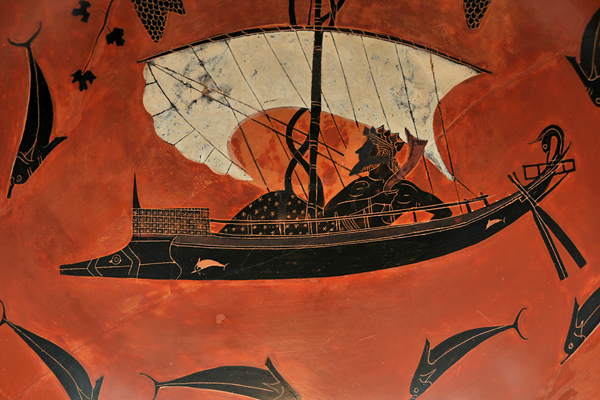

"These blessings he gave:
laughter to the flute
and the loosing of cares
when the shining wine is spilled
at the feast of the gods,
and the wine-bowl casts its sleep
on feasters crowned with ivy."Euripides, The Bacchae
Eurpides died in 406 BC, two years after leaving Athens, a disappointed old man. That same year, The Bacchae was produced posthumously by his son, winning for the dramatist the first prize that so frequently had been denied to him in life. The play speaks of the introduction of Dionysiac worship in Greece, an event that had occurred long before but which survived in mythical form and, at the time Euripides wrote, was an accepted part of Greek religious life, the primitive cult now safely under social control.
The twelth god on Mt. Olympus, Dionysus was to the classical Greeks not so much the god of wine as the principle of animal life, itself, and of all its mysterious and dangerous rhythms. In the intoxication of the grape and, even more so, in the music and dance that accompanied it, his worshippers could experience communion with the god and achieve an ecstasy whereby the inward self was displaced by the god incarnate. In that condition, the Greeks saw the daemonic irrationality of the human psyche and its liberation from the constraints imposed on it by reason and social custom. Freed from convention and fear, the worshiper again became part of nature.
The devotees of Dionysus included the Maenads and their counterparts, the Satyrs.
This detail of Dionysus surrounded by frolicking dolphins is from a cylix in the Staatliche Antikensammlungen (Munich).
![]()